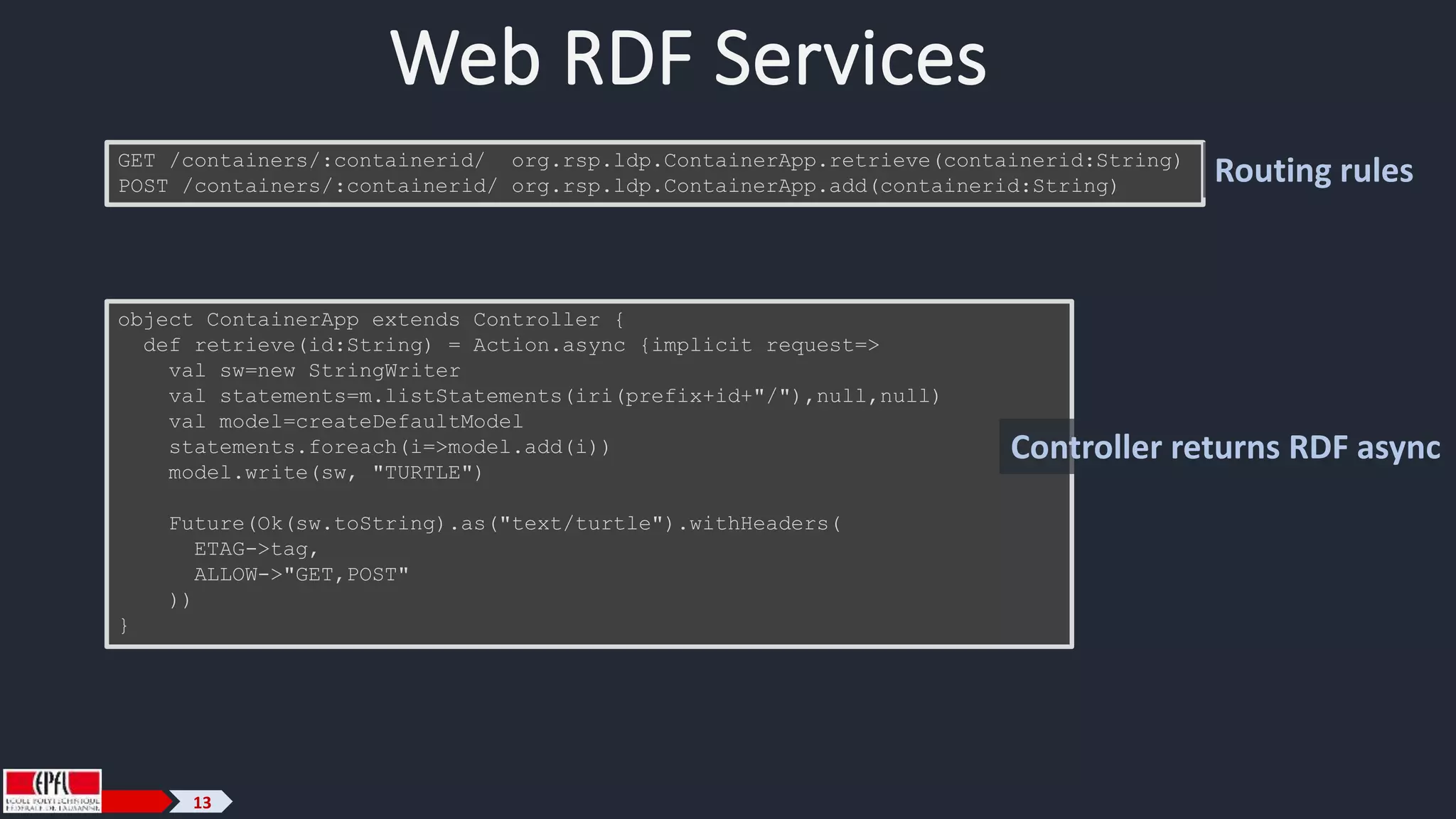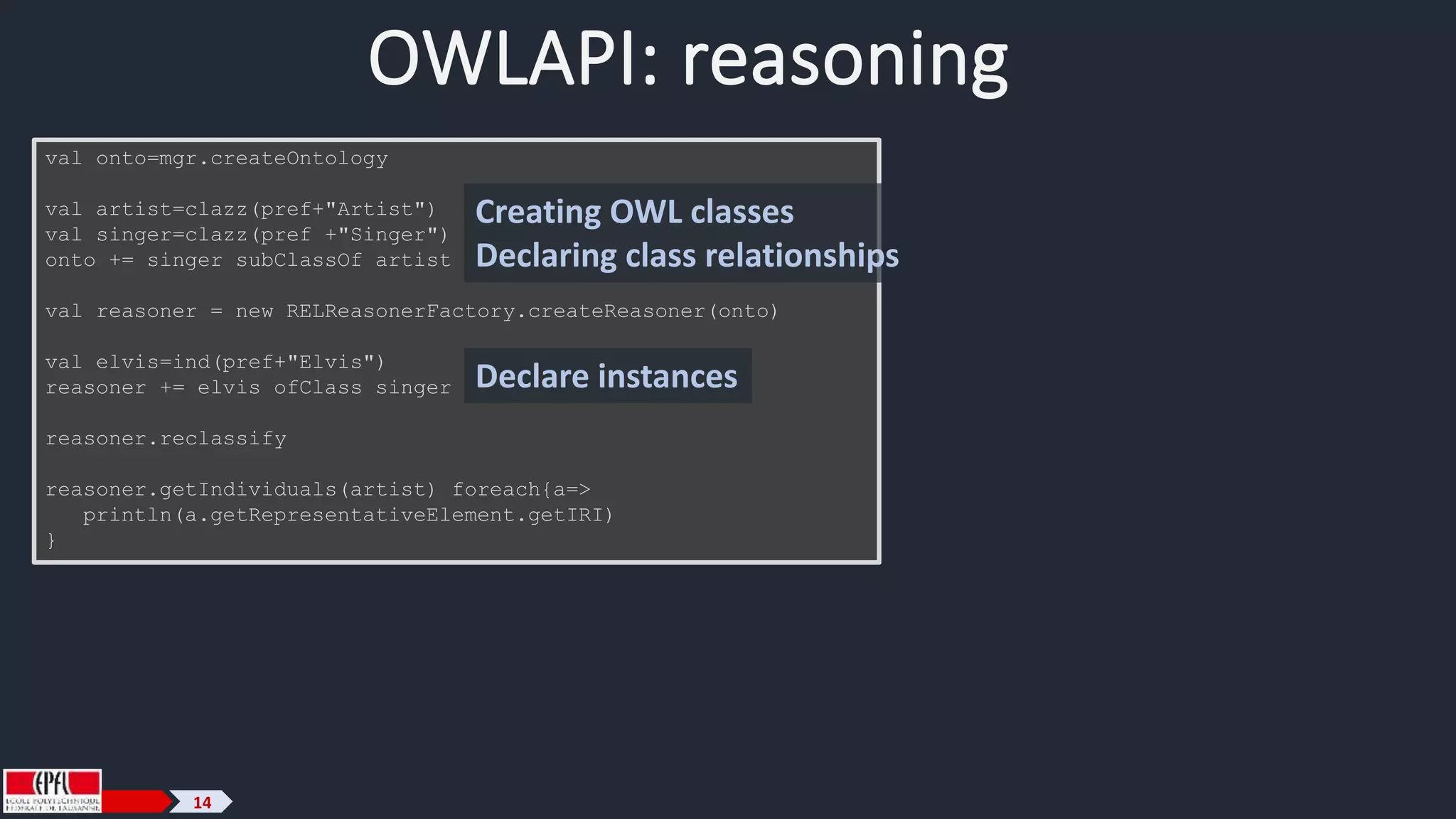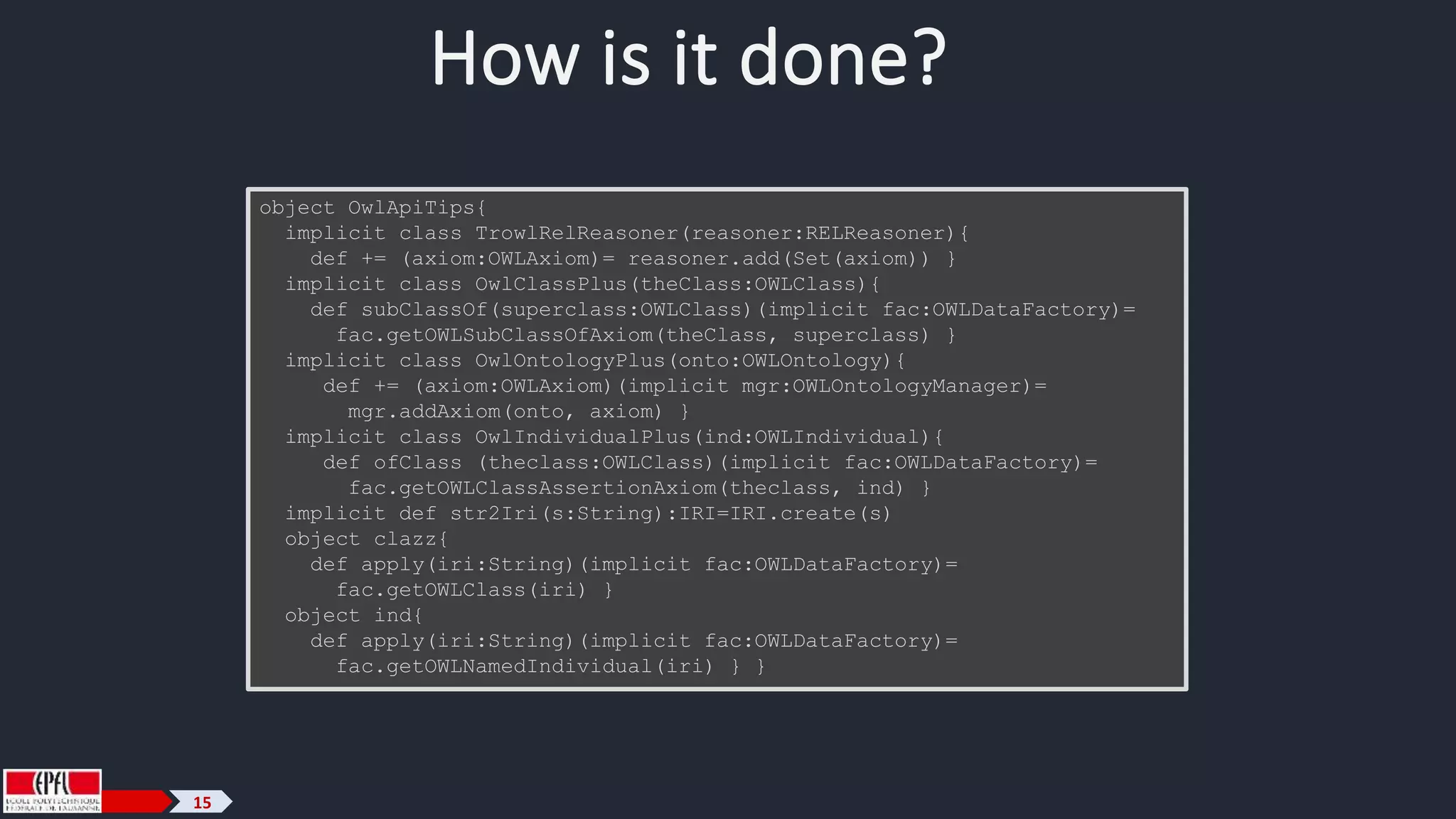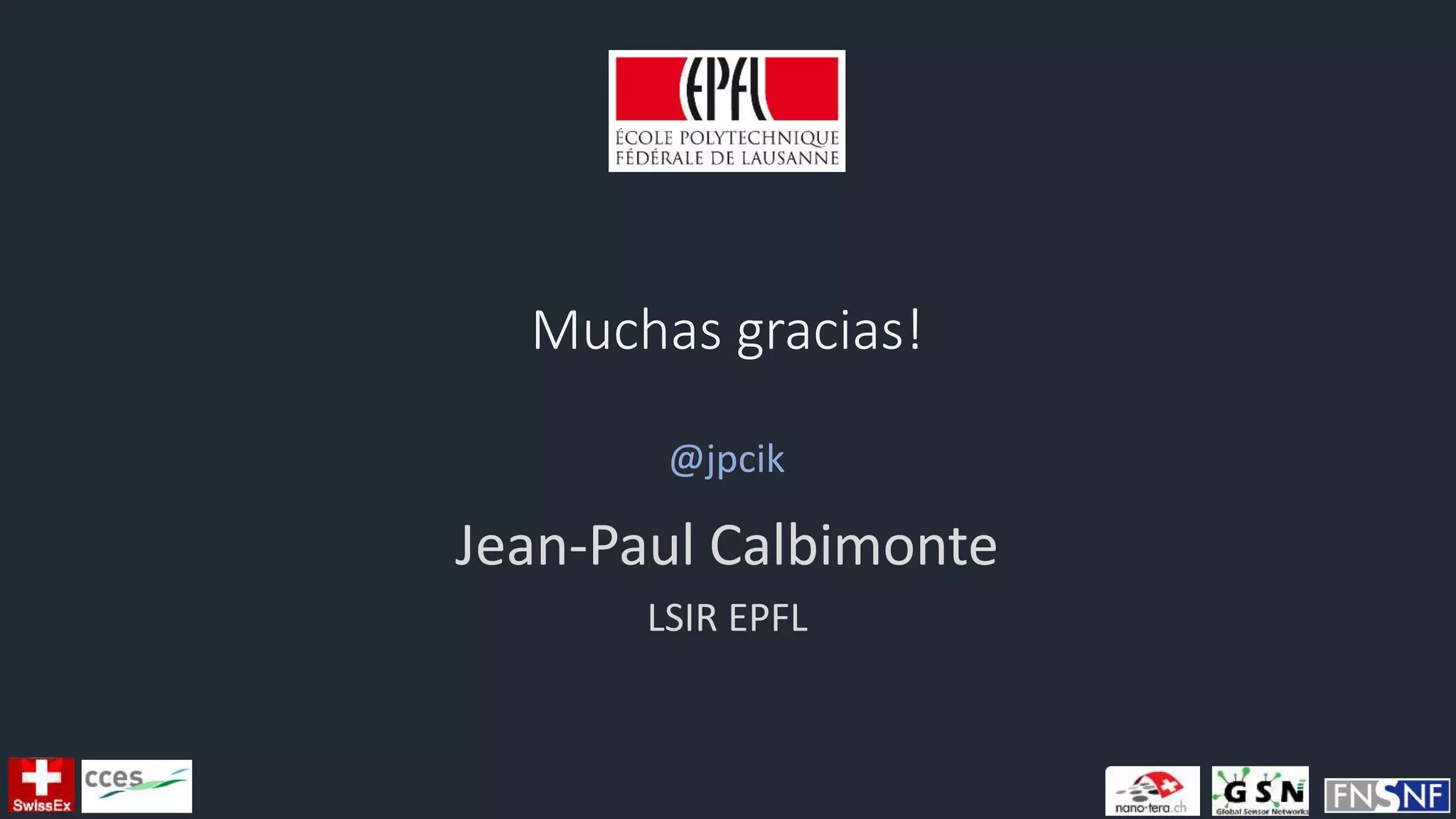Scalable and Reactive Programming for Semantic Web Developers discusses using Scala for semantic web development. Key points include:
- Scala allows for more concise RDF code compared to Java through features like type inference and implicit parameters.
- The actor model and futures in Scala enable asynchronous and reactive programming for RDF streams and SPARQL queries.
- OWL API reasoning with ontologies can be done more clearly in Scala through implicit classes that simplify common operations.
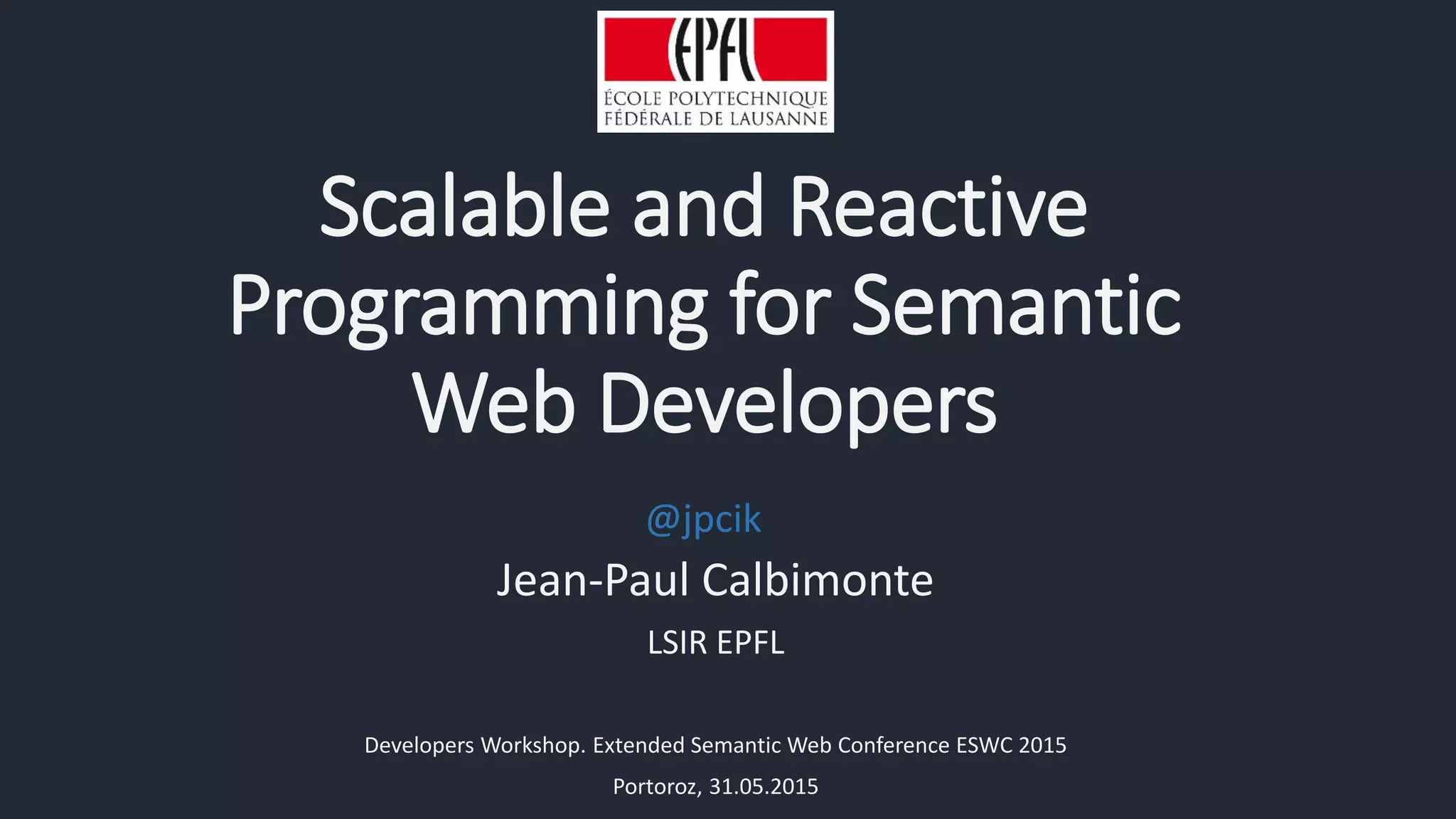
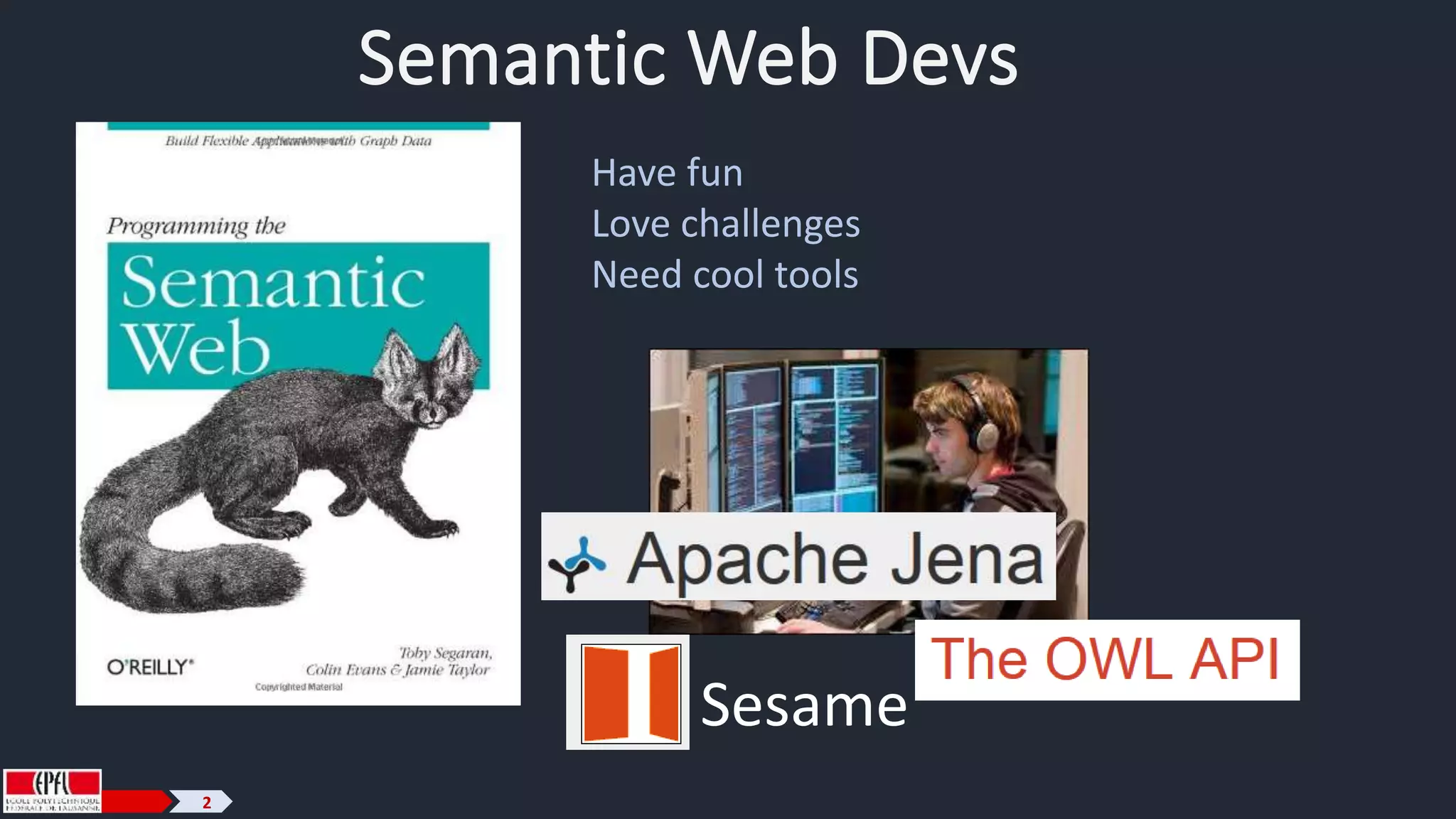
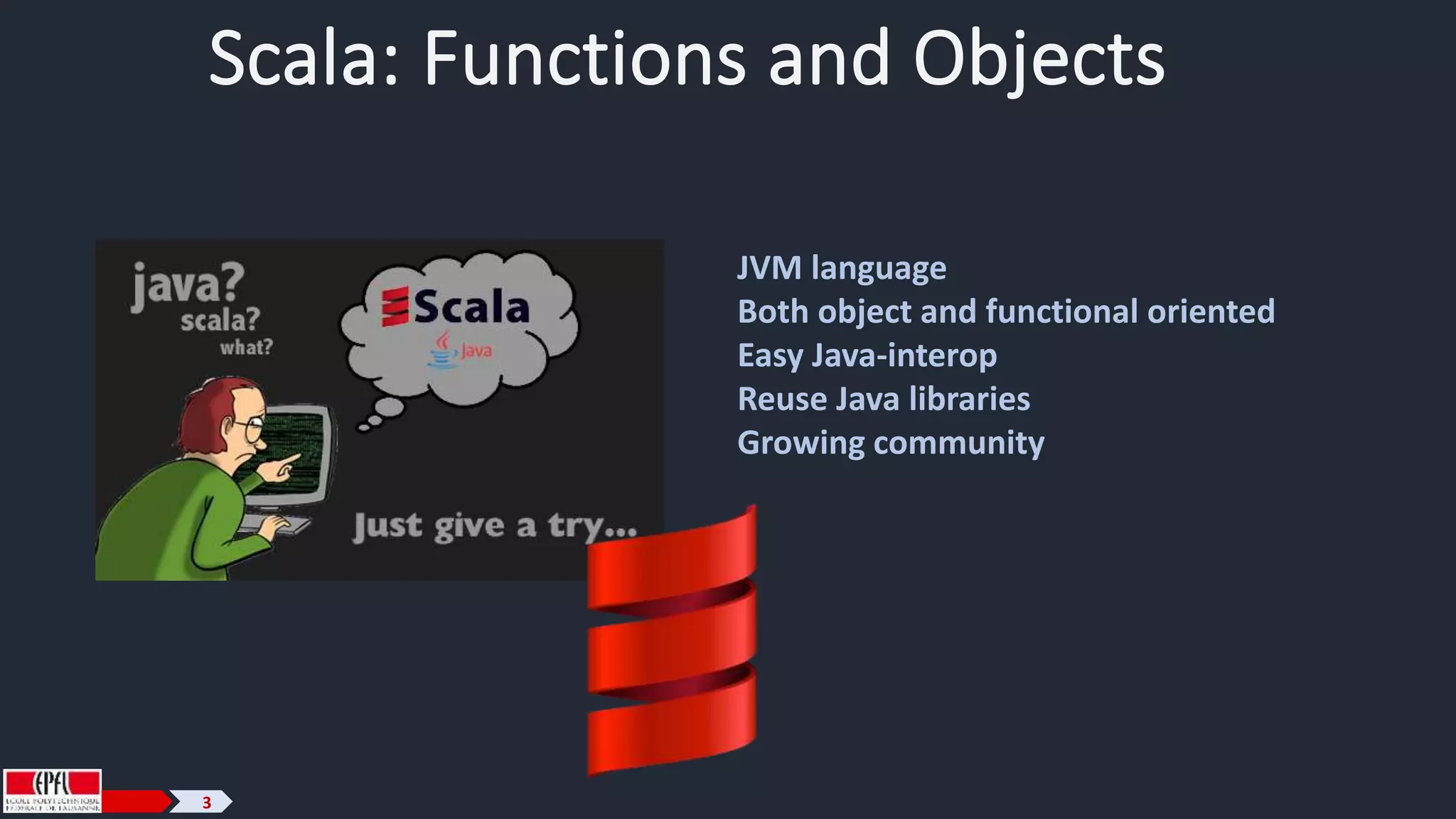
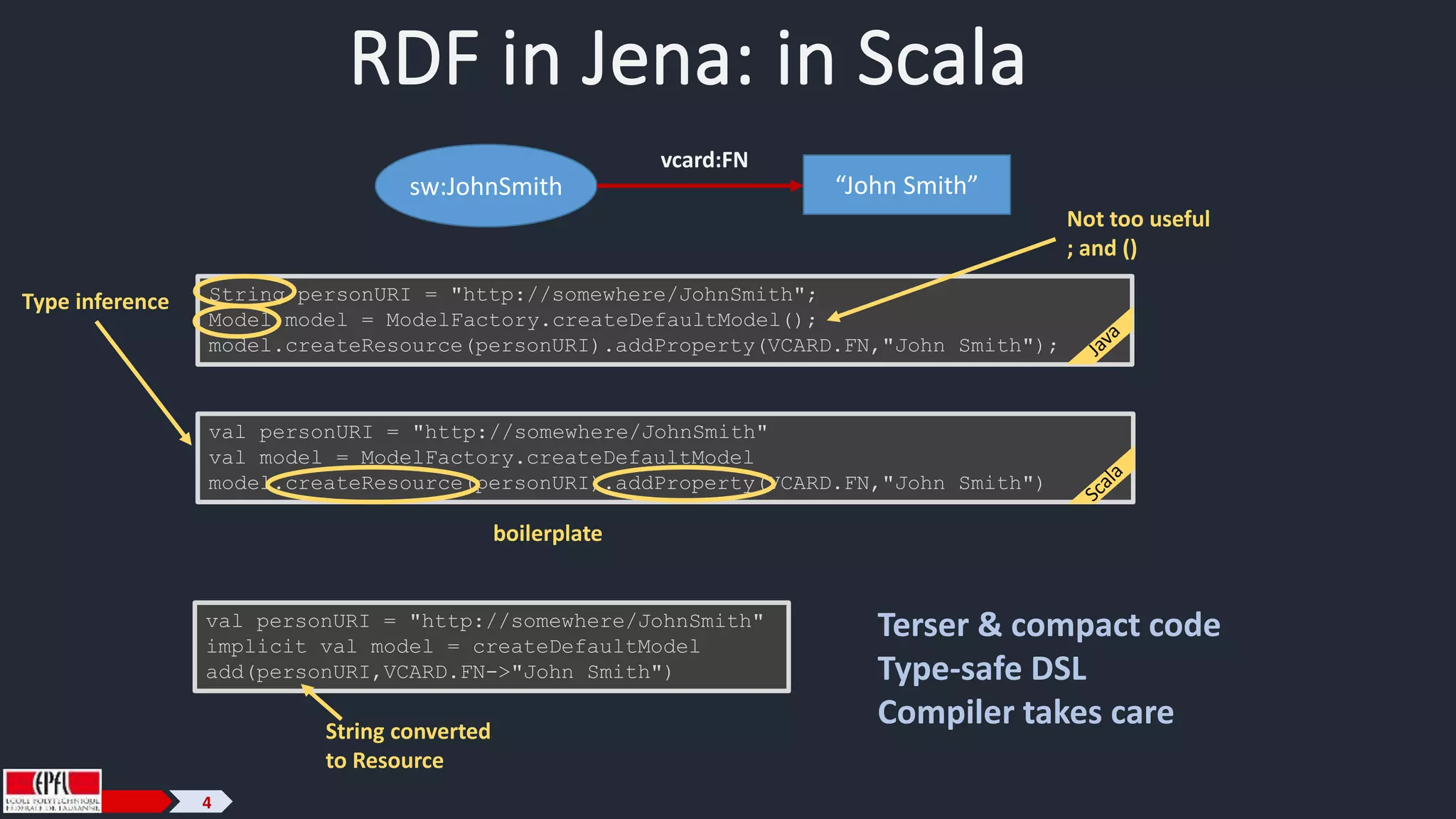
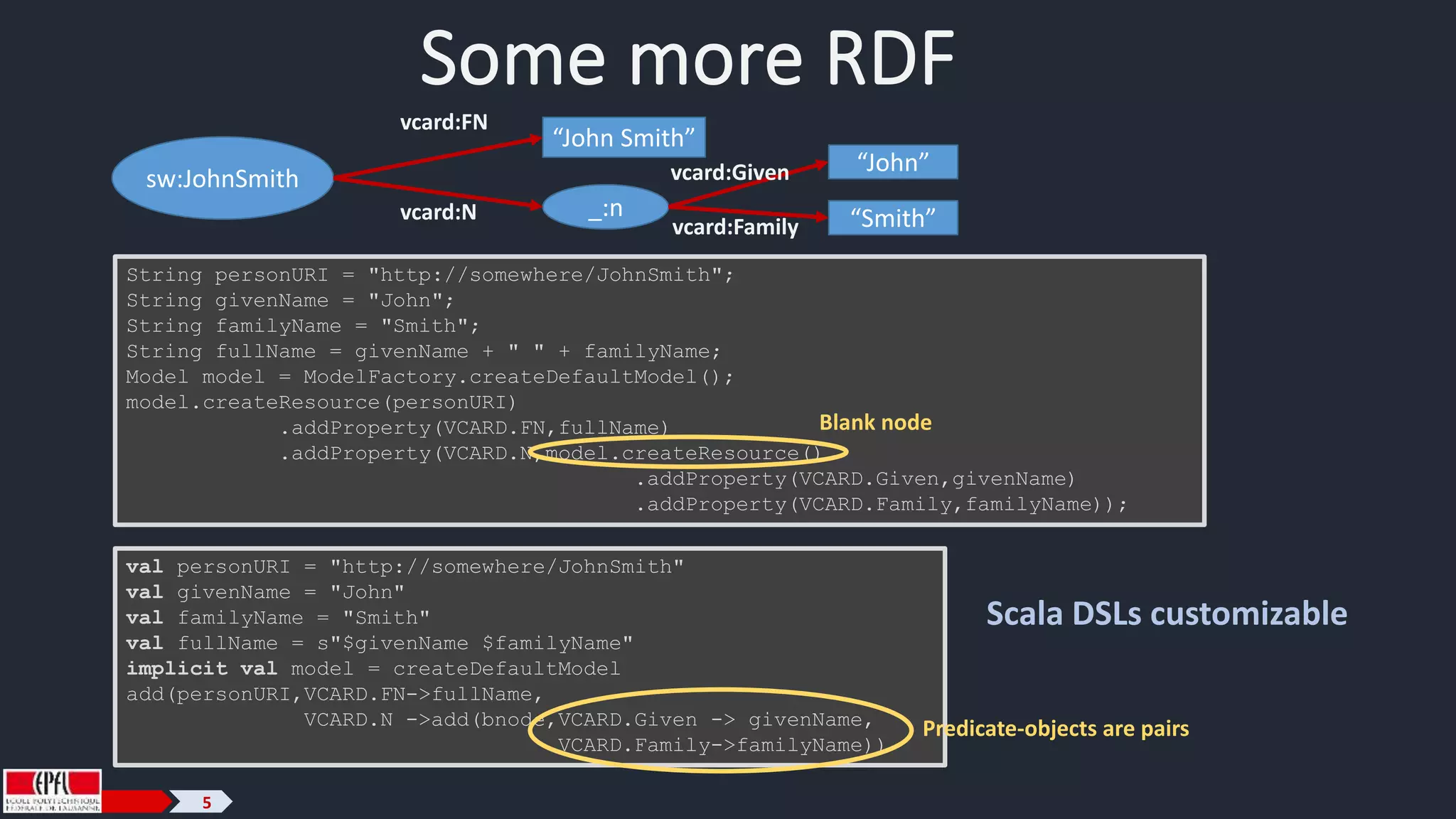
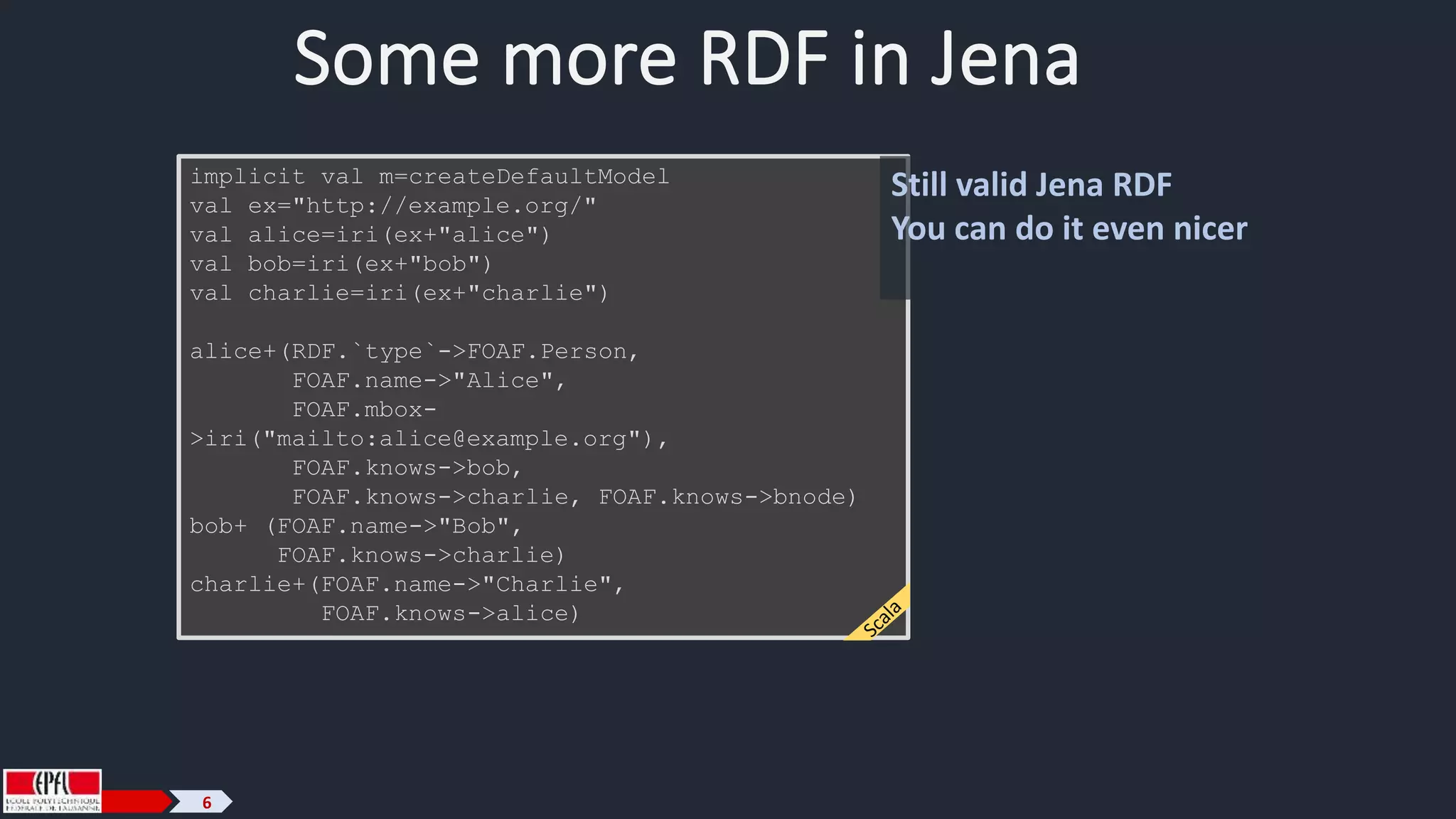
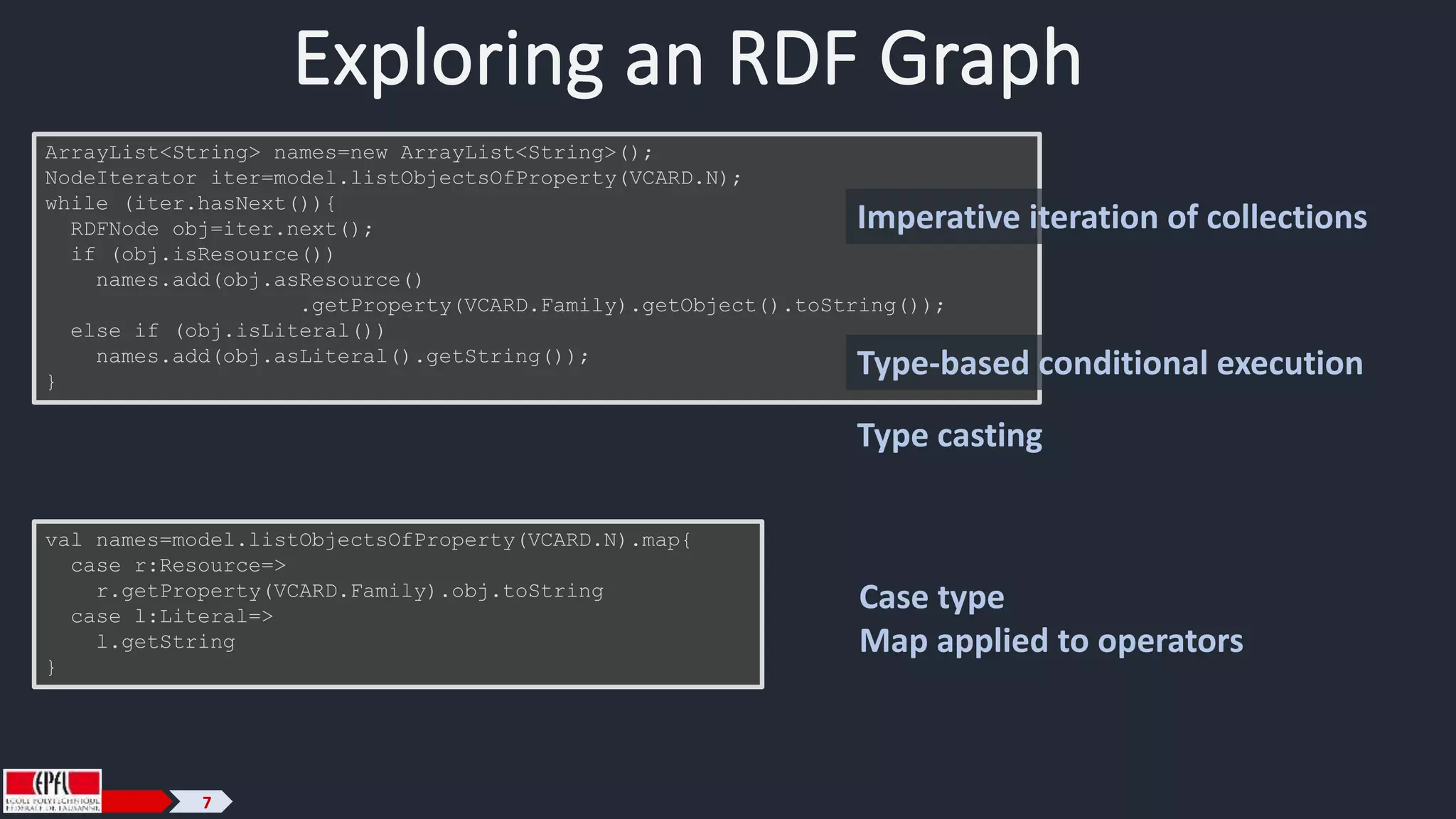
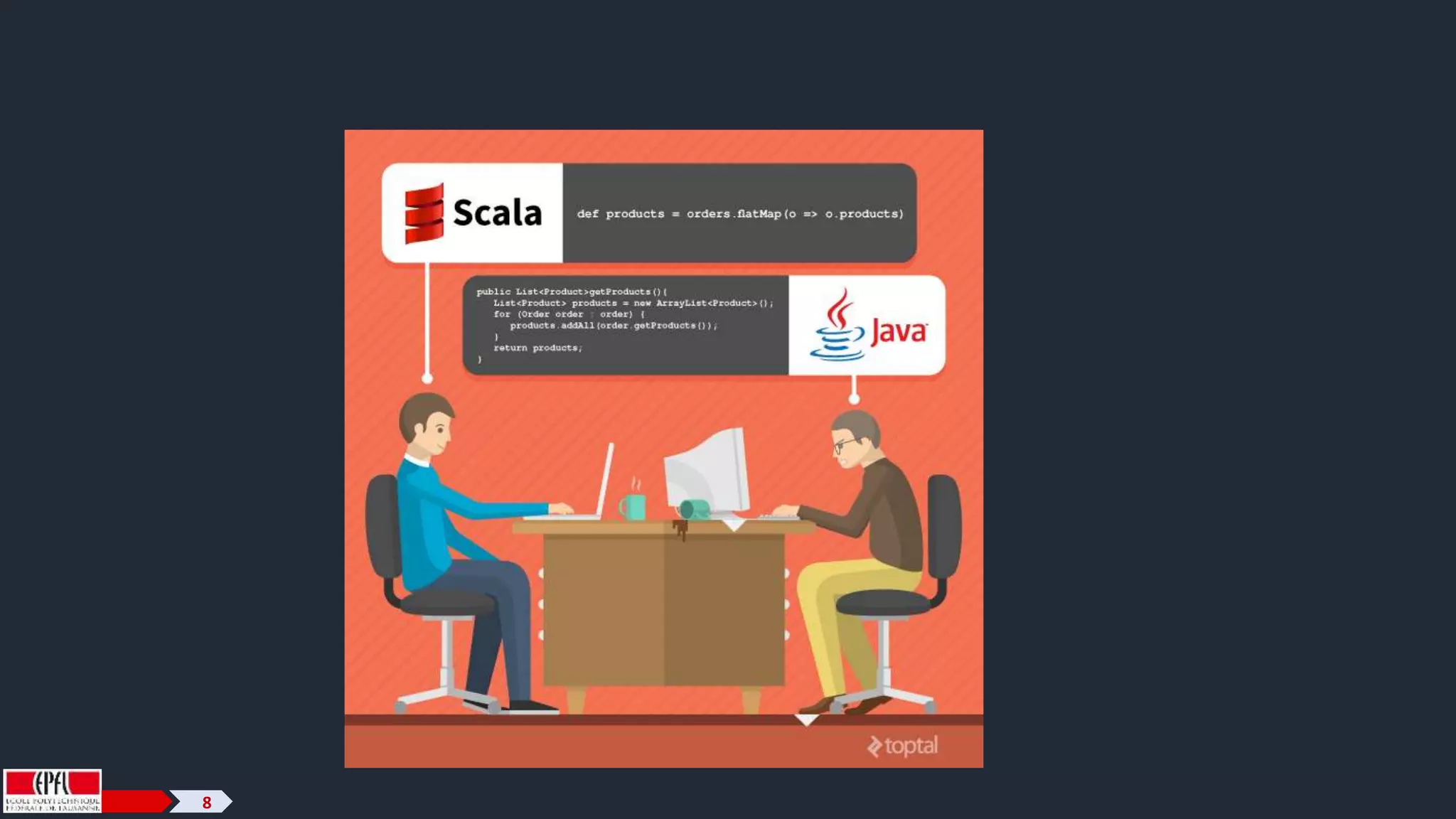
![Query with SPARQL
9
val queryStr = """select distinct ?Concept
where {[] a ?Concept} LIMIT 10"""
val query = sparql(queryStr)
query.serviceSelect("http://dbpedia.org/sparql").foreach{implicit qs=>
println(res("Concept").getURI)
}
val f=Future(query.serviceSelect("http://es.dbpedia.org/sparql")).fallbackTo(
Future(query.serviceSelect("http://dbpedia.org/sparql")))
f.recover{
case e=> println("Error "+e.getMessage)
}
f.map(_.foreach{implicit qs=>
println(res("Concept").getValue)
})
Remote SPARQL endpoint
Simplified access to
Query solutions
Futures: asnyc execution
Non blocking code
Fallback alternative execution](https://image.slidesharecdn.com/semdev2015jpc-150531163243-lva1-app6891/75/Scala-Programming-for-Semantic-Web-Developers-ESWC-Semdev2015-9-2048.jpg)
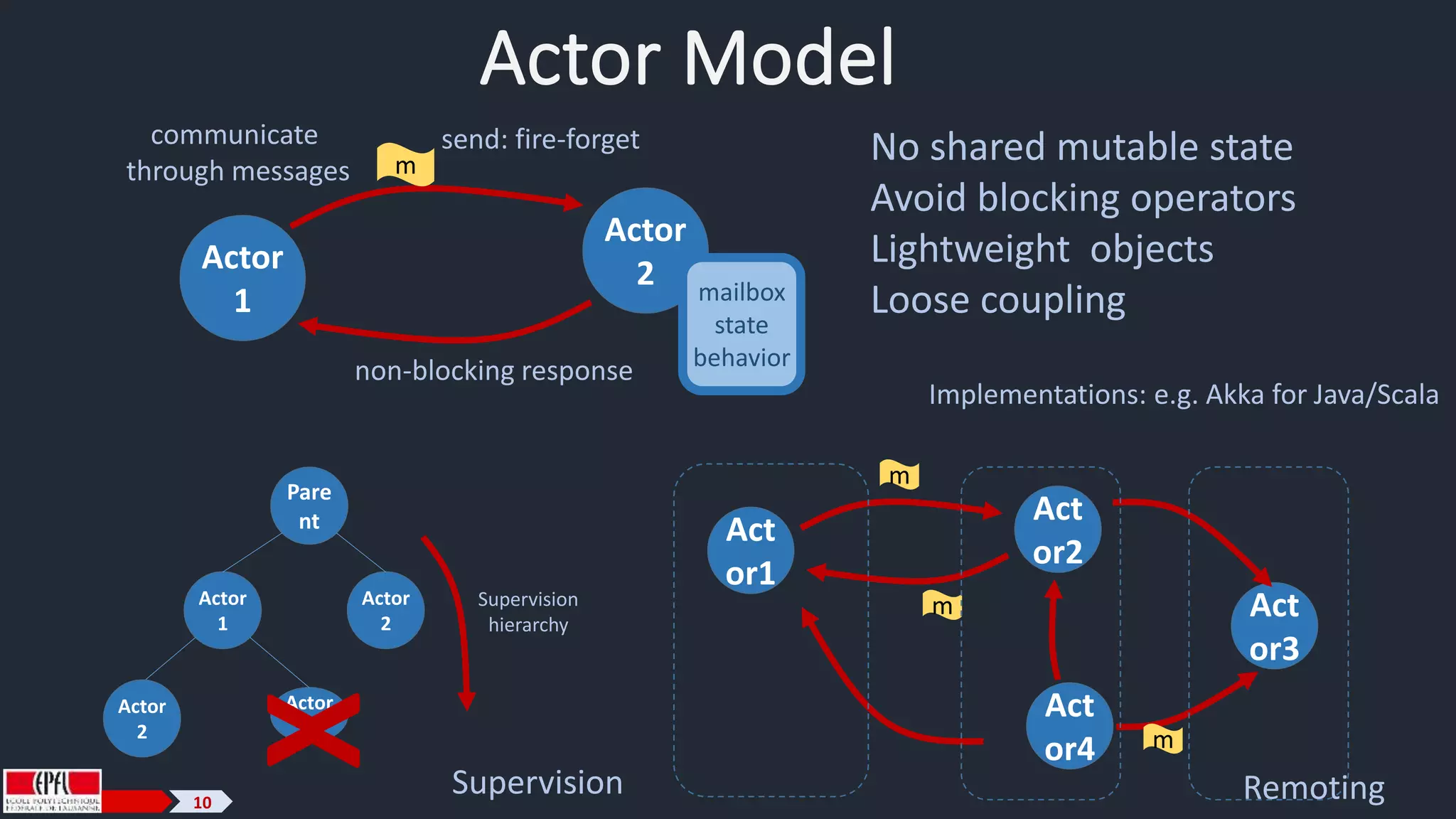
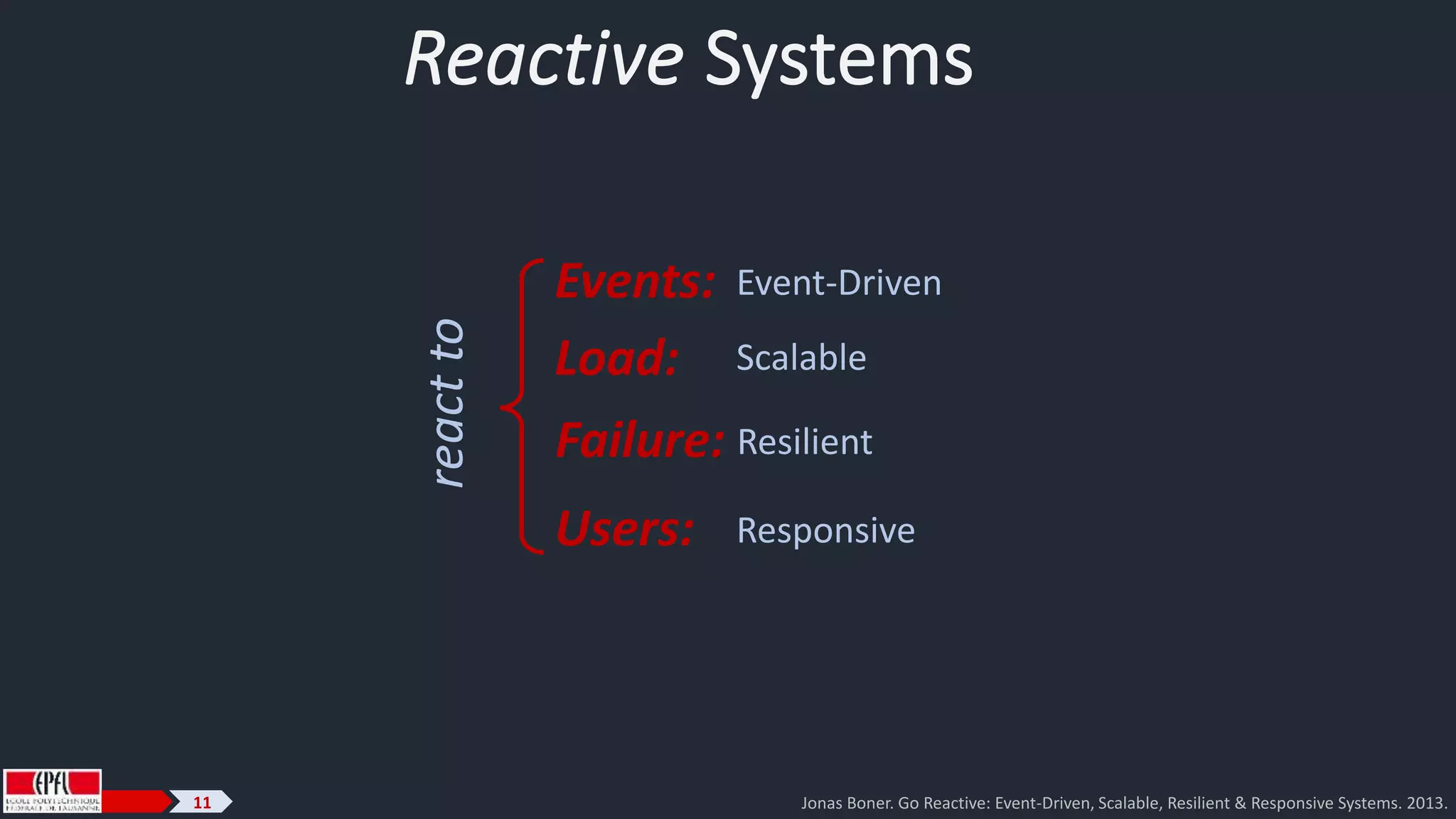
![RDF Streams: Actors
12
val sys=ActorSystem.create("system")
val consumer=sys.actorOf(Props[RdfConsumer])
class Streamer extends StreamRDF{
override def triple(triple:Triple){
consumer ! triple
}
}
class RdfConsumer extends Actor{
def receive= {
case t:Triple =>
if (t.predicateMatches(RDF.‘type‘))
println(s"received triple $t")
}
RDF consumer
Actor receive method
Implements behavior
Message-passing model
RDF producer
Async message passing](https://image.slidesharecdn.com/semdev2015jpc-150531163243-lva1-app6891/75/Scala-Programming-for-Semantic-Web-Developers-ESWC-Semdev2015-12-2048.jpg)
